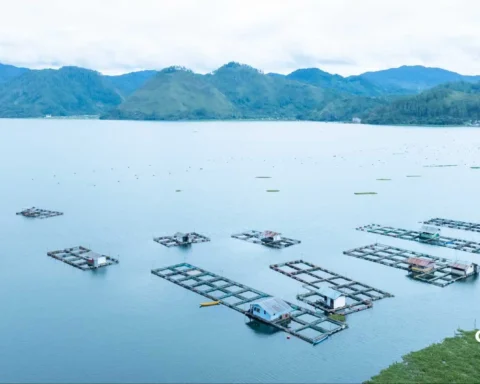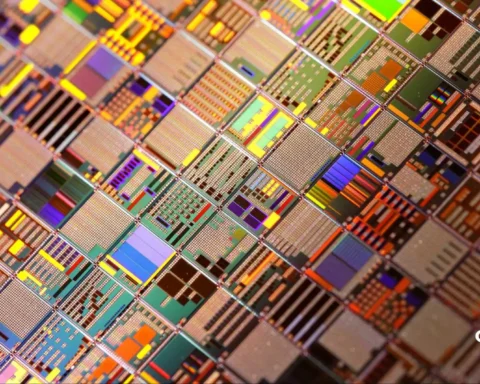It’s no surprise that our world is struggling with several global challenges, such as food security, climate change, and overall environmental degradation.
Sustainable agriculture has emerged as a major driver in addressing such critical issues and has offered significant economic opportunities.
This blog discusses the various strategies and practices being increasingly undertaken to maximize the economic impact of sustainable agriculture.

Table of Contents
What is the Economic Impact of Sustainable Agriculture?

As opposed to conventional farming practices, sustainable agriculture is a farming technique that aims to yield long-term crop production and livestock through eco-friendly farming practices while having the lowest possible negative impact on the environment.
The benefits of sustainable agriculture go beyond a positive environmental impact, contributing to economic progress in numerous ways.
Increased productivity, reduced costs, and rural development are the main economic impacts of sustainable agriculture.
Increased Agricultural Productivity
Sustainable agriculture plays a critical role in increasing productivity. Sustainable farming techniques enhance crop yields over time by maintaining soil health and healthy ecosystems.
This heightened agricultural production brings about higher income for farmers and also contributes to economic growth in general.
Decreased Costs
Sustainable agriculture is a great way to decrease costs.
Traditional agricultural practices usually employ synthetic chemical fertilizers and pesticides, which, besides having harmful chemicals, are also quite expensive.
On the other hand, sustainable agriculture uses alternative practices such as crop rotation, organic cropping, and intercropping, which significantly reduces the need for additional costly chemical inputs.
Additionally, sustainable agriculture minimizes the costs linked to land degradation and biodiversity loss by preserving soil fertility and natural ecosystems.

Rural Development
Sustainable agriculture is an excellent way to foster development in rural communities.
In several developing countries, agriculture is the primary income source of employment. By adopting sustainable farming practices, more jobs and economic activity can be created in rural areas.
Moreover, sustainable agriculture can promote social stability and economic development by contributing to food security.
Indirect Economic Impact
In addition to these three main direct benefits, the economic impact of sustainable agriculture practices has a wide range of facets.
For example, by decreasing greenhouse gas emissions and nurturing biodiversity, sustainable agriculture mitigates the effects of climate change, which has massive economic costs.
Additionally, by encouraging healthy diets and reducing the risk of diseases caused by food, sustainable agriculture can significantly reduce healthcare costs.

Tips to Maximize the Economic Impact of Sustainable Agriculture
Here are a few strategies and practices that can be employed to maximize the economic impact of sustainable agriculture:
Diversifying Agricultural Techniques
Including a wide range of crops, livestock, and agricultural practices can significantly increase income streams.
For example, including more livestock and crops can create a harmonious co-existence where livestock manure can be utilized as crop fertilizer. This reduces dependence on commercial fertilizers and also acts as a natural pesticide.
Crop rotation with legumes or other cover crops enhances soil health and can decrease pests and diseases, leading to higher crop yields and savings.
Another sustainable technique known as multi-cropping is a great way to fully utilize fertile lands, create a habitat for beneficial insects, and boost farm productivity overall.
A well-designed multi-cropping system can offer income from different crops throughout various seasons.
Higher Profits Through Higher Value
Focusing on adding more value to farm products is a direct way to enhance profitability.
For example, transforming raw materials into value-added products such as cheese, jams, or salad mixes can significantly boost profitability.
Selling these products directly to consumers through farmers’ markets or online platforms allows farmers to gain a higher price for their products by eliminating the need for intermediaries.
Using Technology to Enhance Productivity

Utilizing technological advancements such as drones and sensors for the precise application of resources helps optimize yields and minimize waste.
Employing new breeding programs to develop new crop varieties to avoid pests, diseases, and drought-related damage can significantly boost resilience and guarantee long-term productivity even in the face of climate change.
Additionally, integrating renewable energy sources such as solar power, wind energy, or biofuels can decrease the use of fossil fuels, ultimately reducing operational costs and the environmental footprint of agriculture.
ALSO READ: COP28: To Eliminate Fossil Fuels and Save the Planet
Conclusion
Sustainable agriculture has emerged as a reliable and economically feasible technique for simultaneously feeding the earth’s growing population and protecting the planet.
By understanding the economic impact of sustainable agriculture and implementing its unique strategies, we can boost the profitability of the agricultural sector, increase the well-being of farmers in rural communities, and build a food system that benefits both current and future generations.
FAQs
What are the benefits of local sustainable farming?
Besides having a positive impact on environmental health, consumer health, and the economy, local sustainable farming is one of the best ways for farmers to increase their profitability. This is because local, sustainable farming eliminates spending on middlemen.
What is the most sustainable form of agriculture?
Permaculture is one of the most sustainable methods of modern agriculture. It is an innovative approach to land management that aims to mimic and recreate arrangements observed in natural ecosystems.
What is the greatest threat to agricultural sustainability?
Soil degradation, degrading water quality, biodiversity loss, water loss, and the rapidly declining rate of other natural resources are all threats to agricultural sustainability.










[…] RELATED: Maximizing the Economic Impact of Sustainable Agriculture […]
[…] fraud in Suriname has severe long-term economic impacts, undermining public confidence and policy implementation. The cyclical nature of fraud complicates […]
[…] Even with the help of GPS-driven precision farming techniques, disease-resistant and efficient crops are grown. These advanced tools and scientific techniques increase the rate of production. With the help of smartphones, modern farmers can now make informed decisions to avoid any unprecedented incidents. Therefore, modern approaches should be used in farming to attain sustainable agriculture. […]
[…] essence of sustainable agriculture is the aim of meeting the needs of food production without the compromization of future generations […]
[…] natural resources, enhancing soil health, and decreasing greenhouse gas emissions makes sustainable agriculture an ideal alternative to conventional farming […]